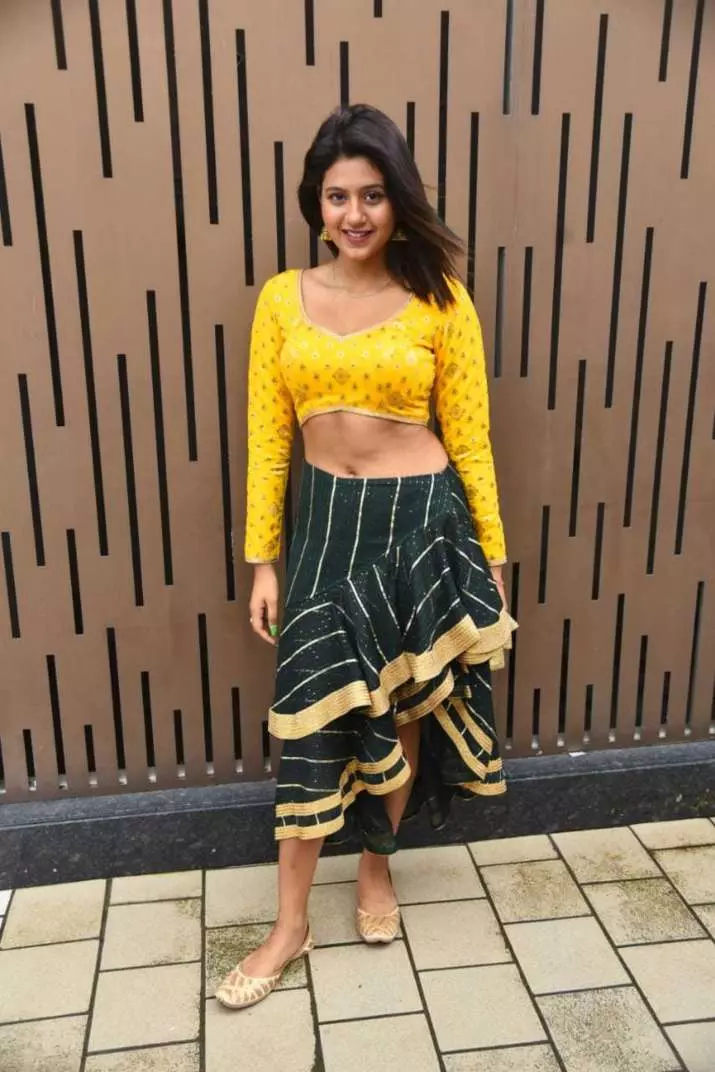Is the digital age blurring the lines between fame and privacy, and how are individuals navigating the intense scrutiny that comes with viral content? The recent controversy surrounding Anjali Arora highlights the complex interplay of social media, celebrity culture, and the pervasive reach of the internet, forcing us to confront uncomfortable truths about how we consume and judge others' personal lives.
The digital landscape, a double-edged sword, offers unprecedented opportunities for self-expression and connection, yet simultaneously amplifies the potential for exploitation and reputational damage. For Anjali Arora, a well-known figure on platforms like TikTok and Instagram, this reality became painfully clear. The emergence of a purported private video, allegedly featuring her, ignited a firestorm of online discussion, speculation, and, regrettably, outright maliciousness.
The nature of the content, described by various sources as sexually explicit, instantly triggered widespread dissemination across the internet. This included postings on platforms known for hosting adult content, and the rapid proliferation of the video across various social media channels. The term MMS, shorthand for multimedia messaging service, was frequently used, referencing the initial method of distribution. The incident quickly escalated into a major public relations crisis for Arora, who found herself thrust into the center of an unwanted and highly personal scandal.
The video's rapid spread prompted numerous responses, including both expressions of support for Arora and further exploitation of the situation. Some users shared the video, while others engaged in critical commentary. News outlets and media personalities weighed in, further fueling the conversation and increasing the visibility of the incident.
The event serves as a case study of the challenges faced by those in the public eye. The ease with which content can be created, shared, and accessed online raises significant concerns about privacy and consent. Additionally, the virality of such content underscores the power of social media to shape narratives and influence public perception, often without regard for the individuals involved.
The incident also prompted discussions about the ethical responsibilities of media consumers. Should individuals share and view content without considering its origins or the potential harm it could inflict on the individuals featured? What is the balance between freedom of expression and respect for personal privacy? These questions are crucial as the lines between private and public lives continue to blur in the digital age.
The aftermath saw Anjali Arora publicly addressing the situation, emphasizing the emotional toll it had taken on her and her family. She spoke about feeling targeted and unfairly judged, expressing her distress at the widespread sharing of the video. Her response, widely reported by media outlets, shed light on the personal impact of such events, moving beyond the initial focus on the content itself and onto the human cost of digital controversy.
The controversy also touched on the complex dynamics of relationships in the public eye. Speculation regarding Arora's personal life intensified as the video circulated. Details about her association with other public figures, including her rumoured relationship with Munawar Faruqui, became focal points of discussions and gossip. This reinforced the degree to which individuals in the public eye have to navigate public and private worlds.
The response to the incident also highlighted broader concerns surrounding the treatment of women online. Many expressed concern about the way the video was shared and discussed, suggesting that Arora's personal life was being subject to unfair scrutiny and objectification. Others highlighted the need for stricter regulations to combat online harassment and the non-consensual sharing of intimate content.
The debate surrounding the video underscores a fundamental tension at the heart of contemporary society: the conflict between the desire for information and the protection of individual privacy. This case demonstrates the need for a responsible approach to the consumption and sharing of information online. It is important to recognize that the content we encounter has real-world consequences and that our actions can affect the lives of others.
The legal and ethical framework surrounding online privacy is still evolving, and incidents like the one involving Anjali Arora highlight the pressing need for clearer guidelines. Laws and policies must adapt to the rapid advancements of technology to protect individuals from the harmful effects of the digital environment. This requires collaboration between policymakers, technology companies, and society as a whole to establish norms that prioritize both freedom of expression and personal privacy.
The Anjali Arora incident offers a valuable lesson about the importance of critical thinking, empathy, and responsible digital citizenship. It encourages us to consider the consequences of our online actions and the impact that our words and deeds can have on others. It also highlights the need for individuals to protect their personal information and be aware of the potential risks associated with the online world.
As the internet continues to evolve, so too must the conversation surrounding online privacy, celebrity culture, and the responsibility of media consumers. The Anjali Arora controversy serves as a timely reminder of the ethical questions that arise in the digital age and the need to approach the online world with caution, consideration, and respect.
This incident forces society to critically assess the way it navigates the digital world. It encourages discussions about the ethical responsibilities of social media platforms, the role of influencers, and the importance of respecting personal boundaries. The debate prompts individuals to consider their behavior and choices online, and to reflect on the kind of online community they wish to foster.
The narrative of the Anjali Arora incident is not merely a tale of a viral video. It is a wider narrative about the human cost of online scrutiny, the fragility of privacy in the digital age, and the importance of critical thinking. As the internet becomes increasingly integrated into daily life, navigating these challenges requires vigilance, empathy, and a commitment to creating a digital world that is both connected and respectful.
| Bio Data | Details |
|---|---|
| Full Name | Anjali Arora |
| Known For | Social Media Influencer, Dancer, Actress |
| Popularity | Gained significant popularity on TikTok and Instagram |
| Notable Work | Short dance videos, appearances in reality shows |
| Controversy | Involved in a viral video controversy, which led to intense scrutiny |
| Associated Persons | Munawar Faruqui (rumored relationship) and DSP Nikhil Sharma (as per reports) |
| Social Media Presence | Active on platforms like Instagram and TikTok |
| Known For | Dance Videos and Trending Content |
| Key Events | Involved in the Lock Upp reality show, a viral MMS Controversy |
| Current Status | Continues to be active on social media despite the controversy |
For more insights into Anjali Arora's career and social media presence, you can refer to her official Instagram profile. The official profile can be found at



